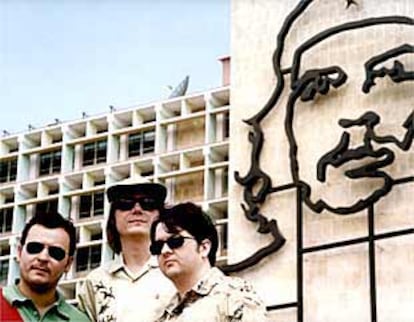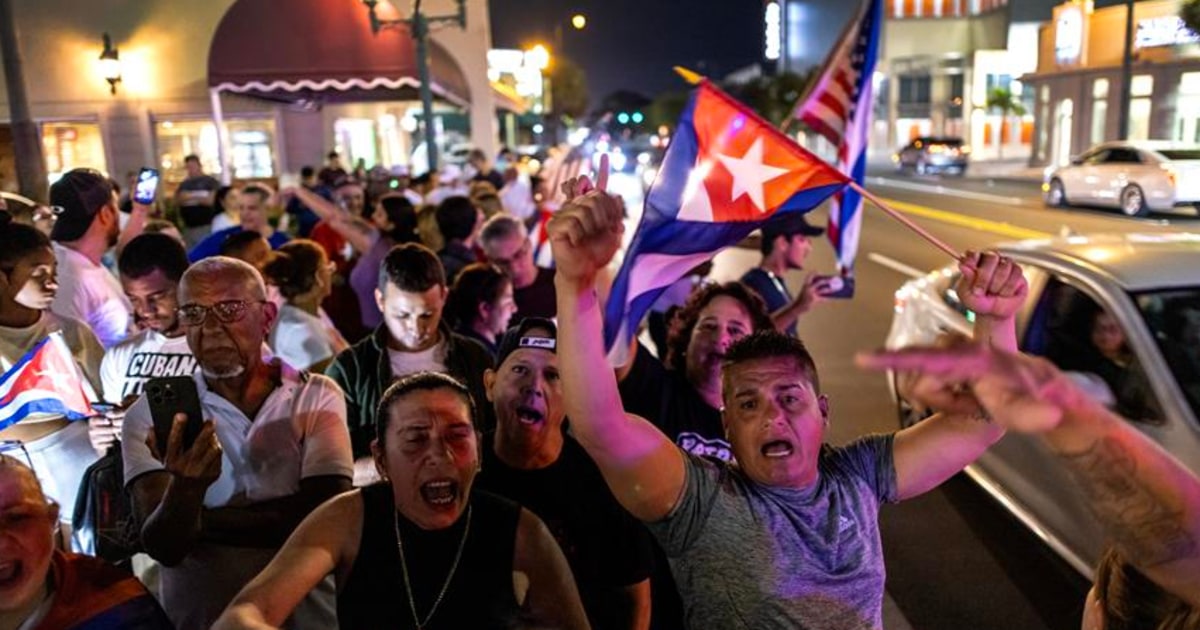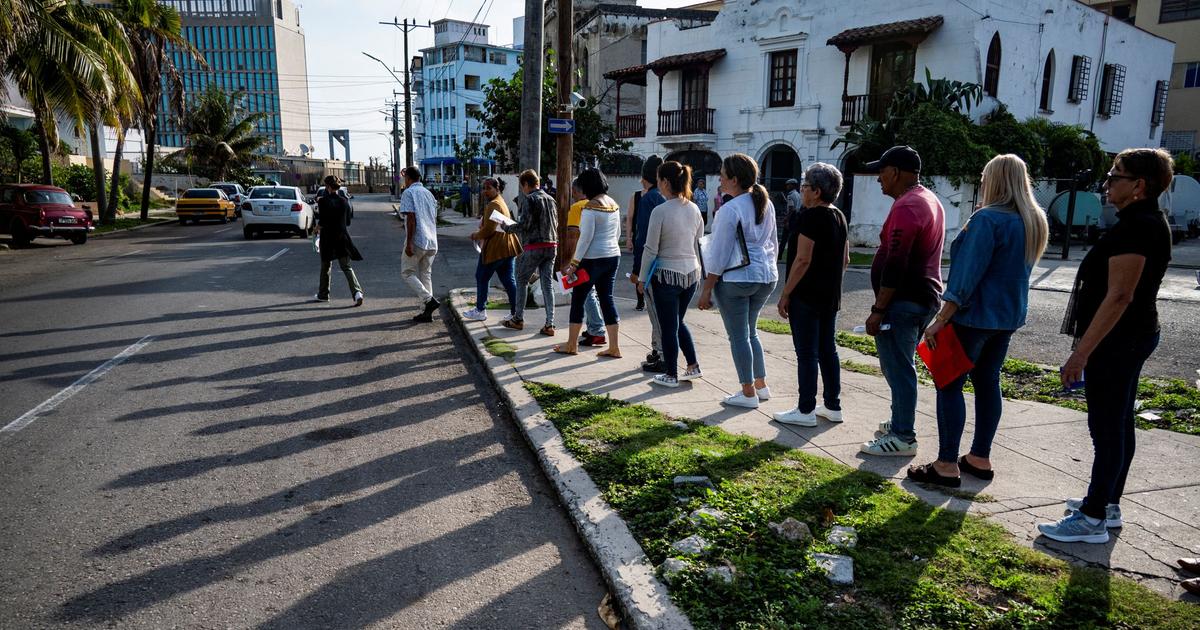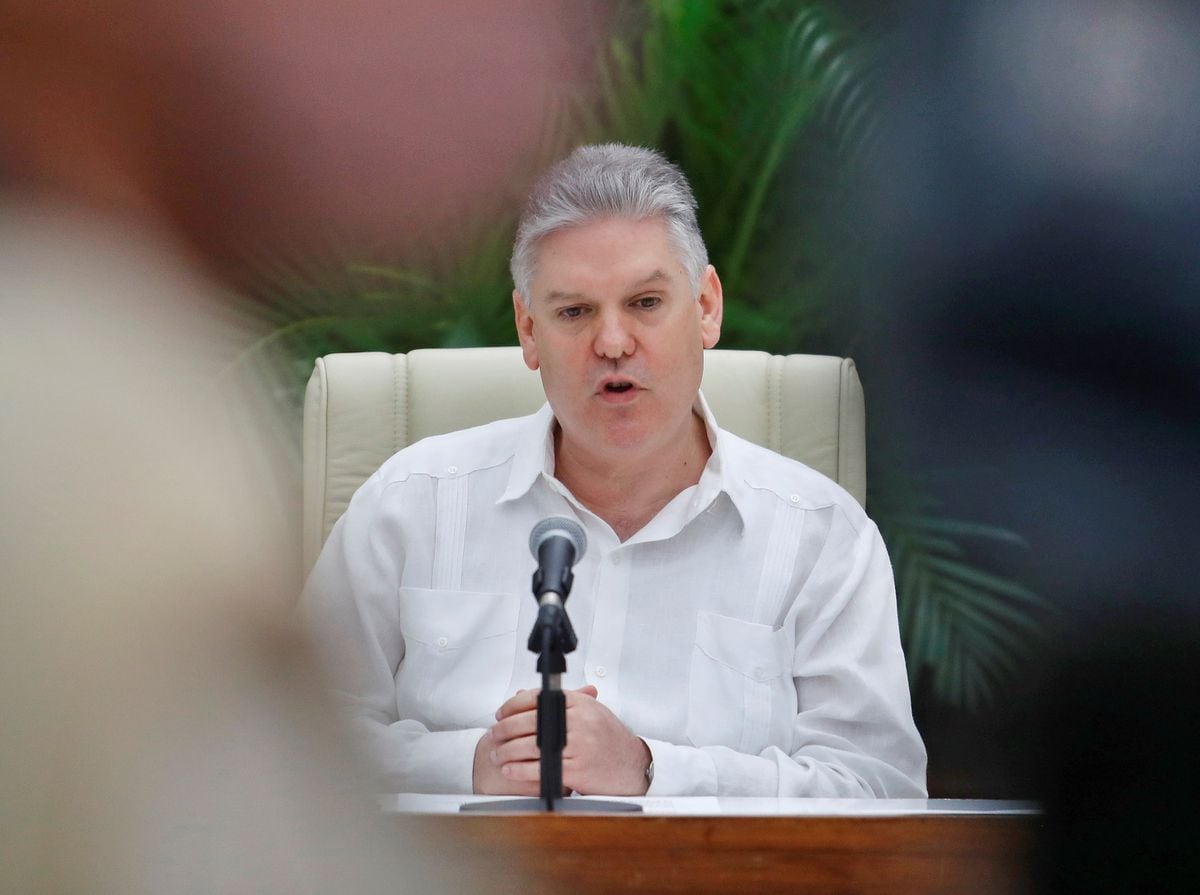Cuba always hurts.
Many of us have family histories of ancestors who lived in the Pearl of the Antilles ... and particular experiences in more or less professional trips.
In 1995, I was part of the Los Ronaldos expedition, invited by the Pablo Milanés Foundation to tour the island.
Quite an adventure: the country was not used to receiving visits from rock groups.
More information
The Rolling Stones in Havana: commotion on the island
The last trip of Santiago Auserón through the lands of the master Guayabero
The Ronaldos return from their 'crusade for rock' in Cuba
That needs, like everything Cuban, to be qualified. In the seventies, some Spanish ensembles sang there. They benefited from a Castro measure against "cultural imperialism": it was forbidden to broadcast, I am not saying to sell, records in English; the stations satisfied the youth demand with productions
made in Spain.
And that meant that, briefly, the recordings of The Mustangs were better known than those of The Beatles. Then serious Spanish singer-songwriters approached them who stayed on the edge of soponcio when the natives asked them to do songs from Las Grecas, which fascinated the revolutionary youth.
Over time, Spanish artists appeared who were creatively and for a long time related to Cuba.
Paradigmatic case is Santiago Auserón, alias Juan Perro.
But also Fermín Muguruza, who already in 1991 was playing with Negu Gorriak at the imposing Havana Astral Cinema-Theater.
Ronaldos's Cuban tour was not such.
Due to tripping by the authorities or due to sheer logistical shortcomings - it was coming out of the horrifying Special Period that followed the disintegration of the USSR - they were unable to act outside of Havana.
We discovered that rock was a mild form of dissent and that it was racialized: the audience (mostly white) at the Karl Marx Theater was shocked that Los Ronaldos invited Afro-Cuban percussionists to “unload”.
In the background, a Machiavellian system, which demanded the loyalty of the parrot.
To "solve" basic needs, every Cuban was obliged to skip the law.
These transgressions could be revealed when it was decided to punish someone, loyal or insubordinate.
No Stasi-type espionage was needed: the degree of social control was staggering.
There were more pleasant lessons.
The discovery of the aged soneros, Compay Segundo or Cotán, protected by Pablo Milanés.
They were retired musicians ... and despised.
I would hear an official from EGREM, the state record company, grumble: "I don't understand why these old men are interested when you have a Julio Iglesias."
Did I say that many of those bureaucrats were tacky?
Dogmatic and tacky.
The British rock band, Manic Street Preachers, in Havana, where they played before Fidel Castro, in 2001.
By then, EGREM could no longer pretend that it was releasing all the music that was made on the Big Island.
The most popular was timba, a torrential local variety of salsa that lubricated the tourist circuit.
Suburban rap was sprouting, which the regime would cleverly fit into its structures.
And as you advanced towards the Cuban East, where Jamaican stations were being picked up, you discovered some shameless dances that today we would describe as “perreo” and that would be identified with reggaeton.
Comparatively, rock was a minority passion, concentrated in the essentials in Havana. Although there were brave groups, such as the Zaragoza District 14, who in 1996 and 1998 took the risk of performing in other locations. Over time, "the concert in Cuba" became yet another marketing option. The Welsh Manic Street Preachers, with a leftist heart, received a visit from Fidel Castro in dressing rooms (that crocodile, who had banned the Beatles, even inaugurated the statue of John Lennon in a Havana park).
Another of the prodigious acrobatics of the regime. Although he could not pay for the cache, Audioslave (2005), Sepultura (2008), Zucchero (2012), the Rolling Stones (2016), Blondie (2019) passed through there. They took the opportunity to record videos of the concert and exploited the consequent publicity. Did those spectacular landings change anything? Did they bring a lust for freedom or did they remain mere displays of privilege? You already know the answer.









/cloudfront-eu-central-1.images.arcpublishing.com/prisa/NS3ZU25XBNH4BJLTJPBCRCLEXE.jpg)





